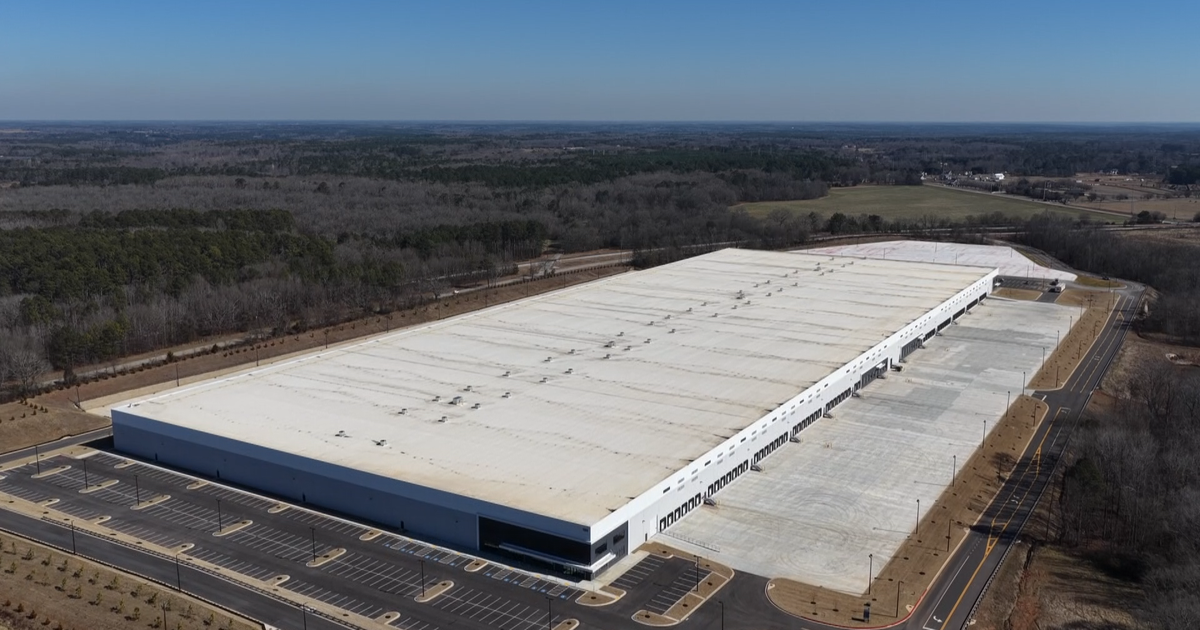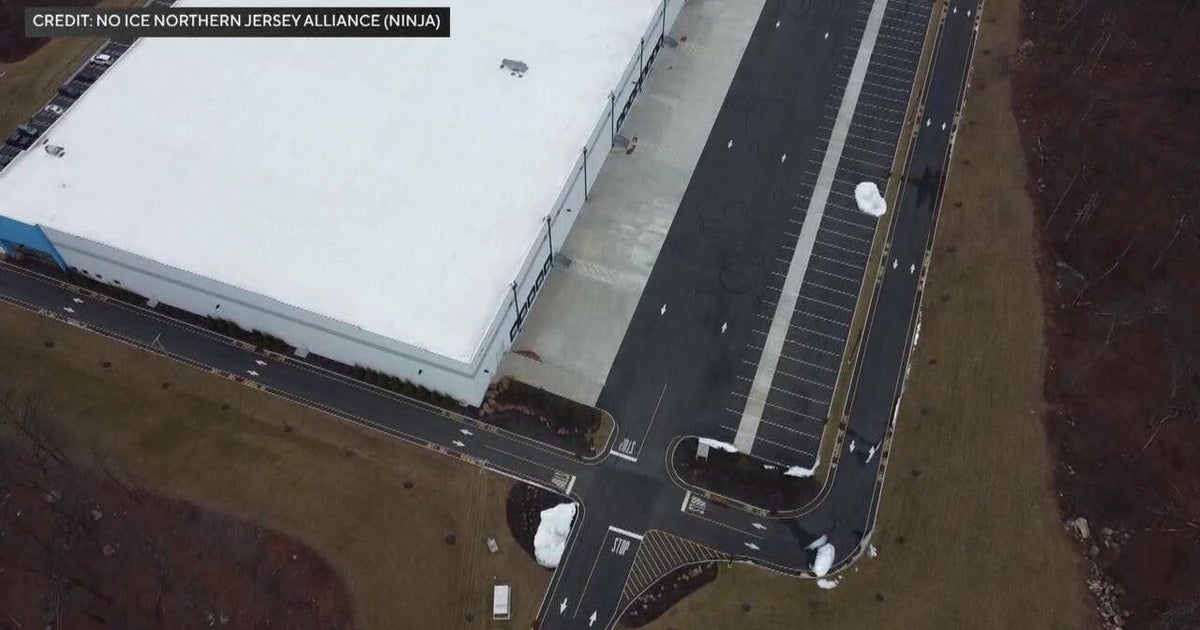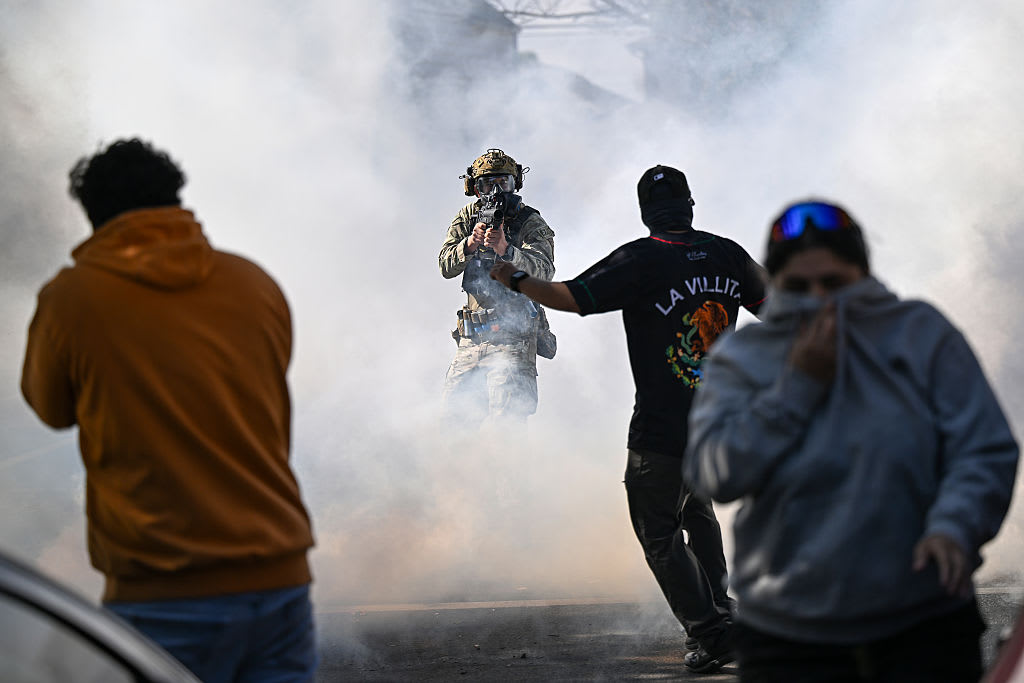Biden administration to wind down long-term detention of migrant families — for now
The Biden administration is moving forward with plans to wind down the long-term detention of migrant families, according to documents filed late Friday in federal court, though advocates worry the policy change won't be permanent.
Immigration and Customs Enforcement (ICE) oversees three detention centers designed to hold migrant parents and children in deportation proceedings: two Texas facilities operated by for-profit prison companies and a smaller one run by officials in Berks County, Pennsylvania. Collectively, the facilities have beds for more than 3,300 parents and children, but the Biden administration's new plan would discontinue their use as long-term family detention centers — at least temporarily.
In documents filed in the U.S. district court in Los Angeles, ICE said it was planning to convert the family detention center in Berks County into an adult-only facility. ICE also announced the Texas detention centers in Dilley and Karnes City would transition into short-term processing facilities designed to hold migrant families for less than three days.
The legal services providers who represent migrant parents and children detained at these facilities said all their clients were released in recent days, but the groups had yet to receive any guidance on why that occurred.
On Friday, ICE said only 13 families remained in detention as of earlier this week, noting that all were slated to be released by Sunday, as long as they tested negative for the coronavirus.
"ICE would like to note that it is revising its current family detention posture at the (family detention facilities) to allow for a broader repurposing of the physical facilities to better meet operational needs," the agency said in its court filing.
ICE did not respond to requests for comment on Friday's court filings. The plan to convert the Texas family detention centers into rapid processing facilities was first reported by the San Antonio Express-News.
Andrea Meza, an immigration attorney at the Refugee and Immigrant Center for Education and Legal Services, the main legal services provider for families detained at the Karnes City facility, expressed concern that the Biden administration's plans may not prove durable.
"The changes at the Karnes and Dilley family prisons are at best, reversible operational changes that reduce the harm of long-term detention, and at worst, a temporary move to quell concern about this controversial immigration policy that will be undone with anti-immigrant political pressure," Meza told CBS News, referring to family detention.
Meza also criticized the U.S. government for continuing to use a public health authority invoked by the Trump administration last spring to rapidly expel most migrant adults and families to Mexico or their home countries without affording them an opportunity to seek humanitarian refuge.
While it shielded unaccompanied minors from the rapid expulsions, the Biden administration has said repeatedly that it will retain the policy, known as Title 42, to continue expelling most border-crossers until it can expand the government's capacity to process asylum-seekers. Some families with young children have been released in south Texas, where local officials are testing them for the coronavirus.
In January, U.S. authorities along the southern border took more than 7,400 parents and children into custody — a 60% increase from December. More than 4,700 of them were expelled under the Trump-era public health order, according to government data.
Advocates have long called for an end to family immigration detention, which child welfare experts have concluded is harmful for minors and their psychological well-being. A 2016 report commissioned by the Department of Homeland Security called for the discontinuation of the practice.
The Obama administration dramatically expanded the detention of parents and children in 2014, when there was a sharp increase in the number of Central American families entering U.S. border custody. The two current family detention facilities in Texas started holding families that year.
In response to a lawsuit filed by lawyers for detained migrant youth, U.S. District Judge Dolly Gee ruled in 2015 that children detained with their parents were also entitled to the legal safeguards of the 1997 Flores Settlement Agreement, which requires the government to work towards the release of minors in its custody.
Gee has also ruled that minors should generally not be held for more than 20 days in secure facilities that are not licensed by states to house children. None of the three ICE family detention centers currently have licenses from state authorities that certify the facilities can care for children.
The Trump administration sought to detain migrant families for the duration of their asylum cases, proposing a rule in 2019 that would've scrapped the Flores agreement and allowed the government to detain parents and children indefinitely. Gee blocked that regulation from taking effect.
President Biden's campaign vowed to use alternative arrangements that wouldn't require holding migrants in detention, including the expansion of case management programs created to ensure asylum-seekers attend their court appointments. Mr. Biden also called for children and parents to be released from ICE detention together last summer.
Bridget Cambria, the executive director of Aldea - The People's Justice Center, which has assisted families at the Berks County detention facility, said the Biden administration should not be in the business of detaining parents and children, even for short time periods.
"You can't continue the use of facilities that were used to punish families, because there's always the fear of going back," Cambria told CBS News. "The facilities, all three of them, are secure, unlicensed detention facilities so you have to question using them for any period of time."




